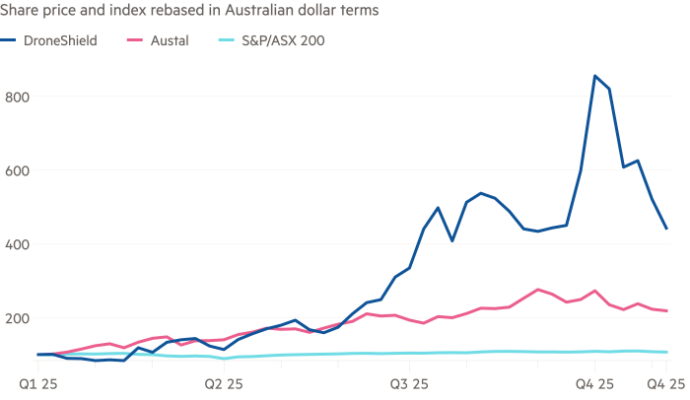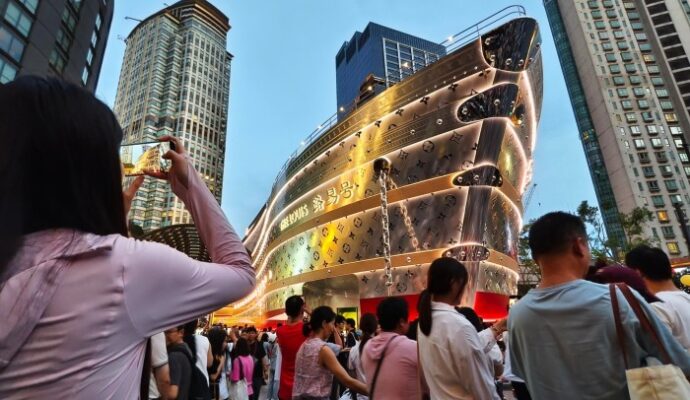This article is an on-site version of our FirstFT newsletter. Subscribers can sign up to our Asia, Europe/Africa or Americas edition to get the newsletter delivered every weekday morning. Explore all of our newsletters here
Good morning and welcome to FirstFT Asia. Today we’ll be covering:
The latest salvo in the US-China chip war
Shein considers a Hong Kong IPO
The ‘antifeminist’ candidate wooing young South Korean voters
The Trump administration has told US companies that offer software used to design semiconductors to stop selling their services to Chinese groups, in the latest attempt to make it harder for China to develop advanced chips.
What we know: The US Department of Commerce has told so-called electronic design automation groups — which include Cadence, Synopsys and Siemens EDA — to stop supplying their technology to China. It is unclear if every US EDA company has been given the order.
What is EDA software? While it accounts for a relatively small share of the overall semiconductor industry, EDA software allows chip designers and manufacturers to develop and test the next generation of chips, making it a critical part in the supply chain. Synopsys, Cadence Design Systems and Siemens EDA account for about 80 per cent of China’s EDA market.
Why it matters: The move marks a significant new effort by the administration to stymie Beijing’s ability to develop leading-edge artificial intelligence chips — and comes at a delicate time in US-China relations.
Washington and Beijing are trying to reach a trade deal after both sides recently agreed in Geneva to pause tit-for-tat tariffs for 90 days. Christopher Johnson, a former CIA China analyst, said the new export controls underscored the “innate fragility of the tariff truce reached in Geneva.” He added: “[T]he risk the ceasefire could unravel even within the 90-day pause is omnipresent.” Read the full story.
Here’s what else we’re keeping tabs on today:
Economic data: Japan reports trade figures.
Monetary policy: The Bank of Korea is expected to lower its policy rate by 25 basis points today, according to economists polled by Reuters.
Five more top stories
1. Shein is considering swapping London for Hong Kong as the location for its long-planned stock market listing. The fast-fashion group is turning its focus towards Hong Kong as its preferred listing venue after protracted efforts to float in London. However, no decision has been taken. Here’s what led to the possible shift.
Chinese economy: European companies in China are more concerned about a domestic slowdown in the world’s second-largest economy than the trade war, according to a new survey.
2. A group of large pension funds has demanded that Elon Musk commit to work at least 40 hours a week at Tesla, calling for corporate governance reforms to address a “crisis” at the carmaker. While the letter’s signatories hold only 0.25 per cent of Tesla’s shares, the move highlights how the billionaire’s polarising position in US politics has made some asset managers more outspoken in challenging him.
Billionaire bromance: Musk has signed a $300mn deal with Pavel Durov, founder of Telegram, to distribute xAI’s Grok chatbot to the messaging app’s 1bn users.
More Musk: The billionaire has criticised Trump’s showpiece tax bill, claiming it “undermines” the work done by his government cost-cutting team.
3. A closely watched auction of 40-year Japanese government debt has drawn the lowest demand in 10 months as concerns mount over the world’s third-biggest bond market. The weak demand was a reflection of what some traders have called a “buyers’ strike” among Japanese life insurers and other domestic participants.
4. The Czech government said yesterday that state-sponsored Chinese hackers had targeted its foreign ministry, the latest in a series of cyber attacks that have been blamed on Beijing. Prague did not specify the impact of the attack, but Nato said it had caused “damage and disruption”.
5. European Central Bank President Christine Lagarde discussed cutting short her term at the bank to become chair of the World Economic Forum, the think-tank’s founder Klaus Schwab said. Schwab told the Financial Times that a Switzerland apartment had already been reserved for her. An ECB spokesperson said Lagarde was “determined to complete her term”.
The Big Read

Launched a decade ago with the aim of dominating sectors from aerospace equipment to electric vehicles, Beijing’s Made in China plan sought to achieve 70 per cent domestic market share across Chinese manufacturing of “core basic components and key basic materials” by this year. Today, these aggressive investments in domestic production have successfully established China as a global leader in manufacturing, but strained trade ties with the west. What can the world learn from it?
We’re also reading . . .
South Korea election: A young antifeminist rightwinger has emerged as a fresh obstacle to the country’s embattled conservatives retaining power.
Putin’s war economy: An FT analysis shows a boom in living standards is ending, but the slowdown may not affect Russians’ support for the war.
The myth of Maga’s isolationism: From South Africa to Europe, Trump’s movement is absolutely obsessed with foreign countries, writes Janan Ganesh.
Chart of the day
India has offered “deep” cuts to its import tariffs on a swath of goods in talks with the US, but is seeking to retain its high levies on sensitive agricultural commodities such as foodgrains and dairy products. Here’s what else we know about the trade discussions.
Take a break from the news
What makes the perfect cheeseburger? One chef says it’s all about the patty: “You need the perfect synthesis of aged beefy funk, bold assertive savour, a firm meaty density, but a forgiving and indulgent yield on the bite.” HTSI grills the experts.




